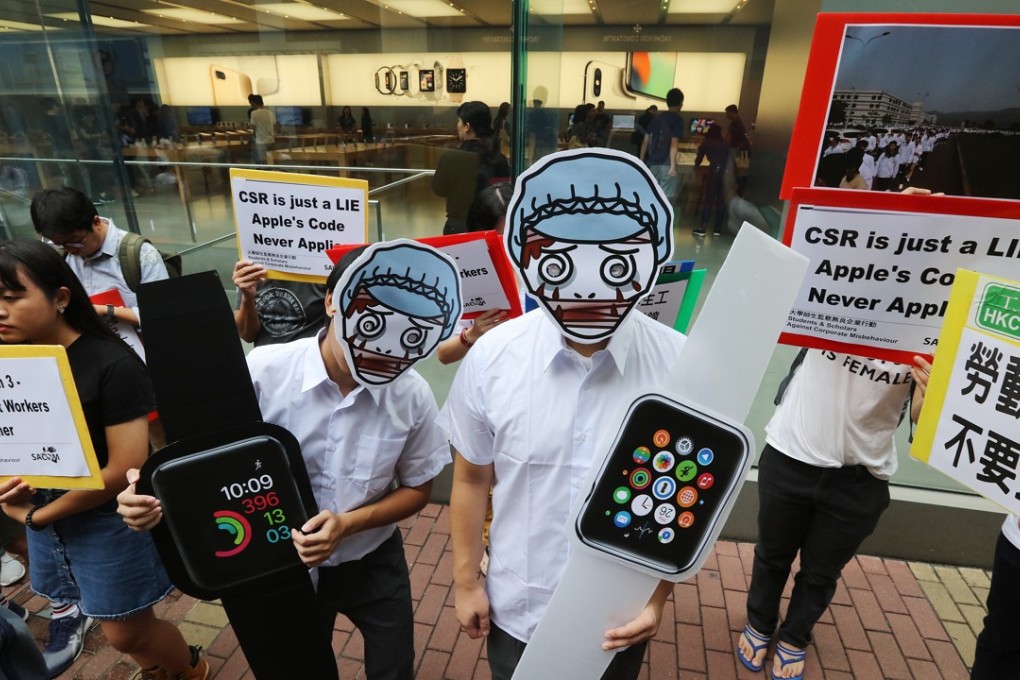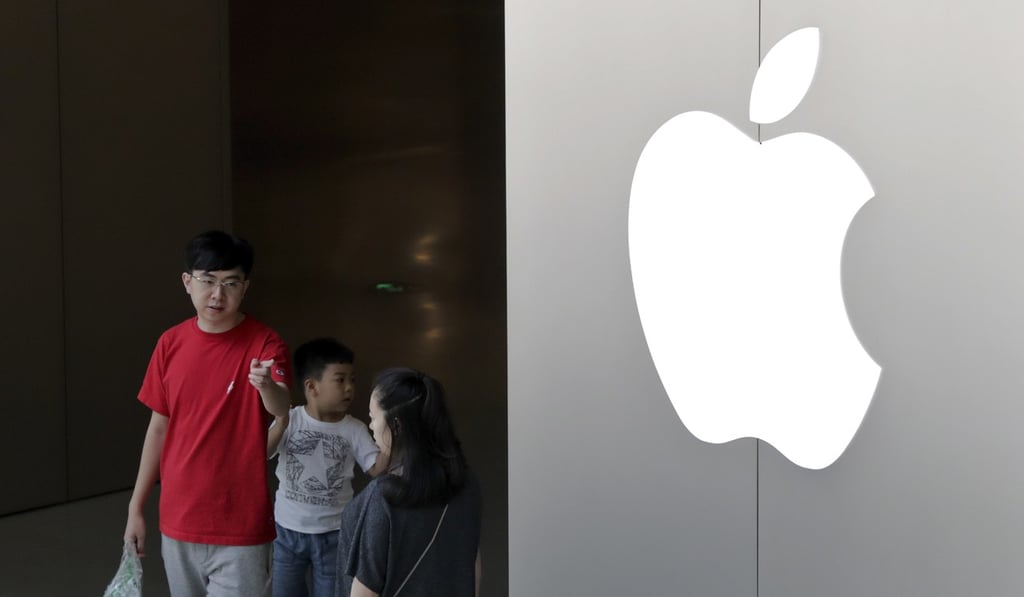Workers at Apple supplier Catcher Technology describe harsh conditions
Chinese recruiters play up chance to build advanced electronics to attract the millions of uneducated labourers needed to economically produce iPhones

At a Catcher Technology manufacturing complex in the Chinese industrial city of Suqian, about six hours’ drive from Shanghai, workers stand for up to 10 hours a day in hot workshops slicing and blasting iPhone casings for Apple, handling noxious chemicals sometimes without proper gloves or masks.
These conditions – some described in a report Tuesday by advocacy group China Labour Watch and others in interviews with Catcher workers – show the downside of a hi-tech boom buoying the world’s second-largest economy. Chinese recruiters play up the chance to build advanced consumer electronics to attract the millions of typically impoverished, uneducated labourers without whom the production of iPhones and other digital gadgets would be impossible.
Goggles and earplugs are not always available, a problem when some factory machines are noisy and spray tiny metallic particles or coolant, according to interviews with workers. CLW said the noise was about 80 decibels or more. That is roughly equivalent to an average factory or a garbage disposal, according to IAC Acoustics, an industrial noise-control specialist.
Hundreds throng a workshop where the main door only opens about 30cm (12 inches). Off duty, they return to debris-strewn dorms bereft of showers or hot water. Many go without washing for days at a time, workers said.

Apple spent years upbraiding manufacturers after a rash of suicides at its main partner, Foxconn Technology Group, in 2010 provoked outrage over the harsh working environments in which its upscale gadgets were made. Foxconn hired psychological counsellors, set up a 24-hour care centre, and attached large nets to factory buildings to prevent impulsive suicides, according to a 2011 Apple progress report. Soon after, Apple developed standards and started audits of the hundreds of companies that produce components for its devices, threatening to pull business from those who flout labour laws.